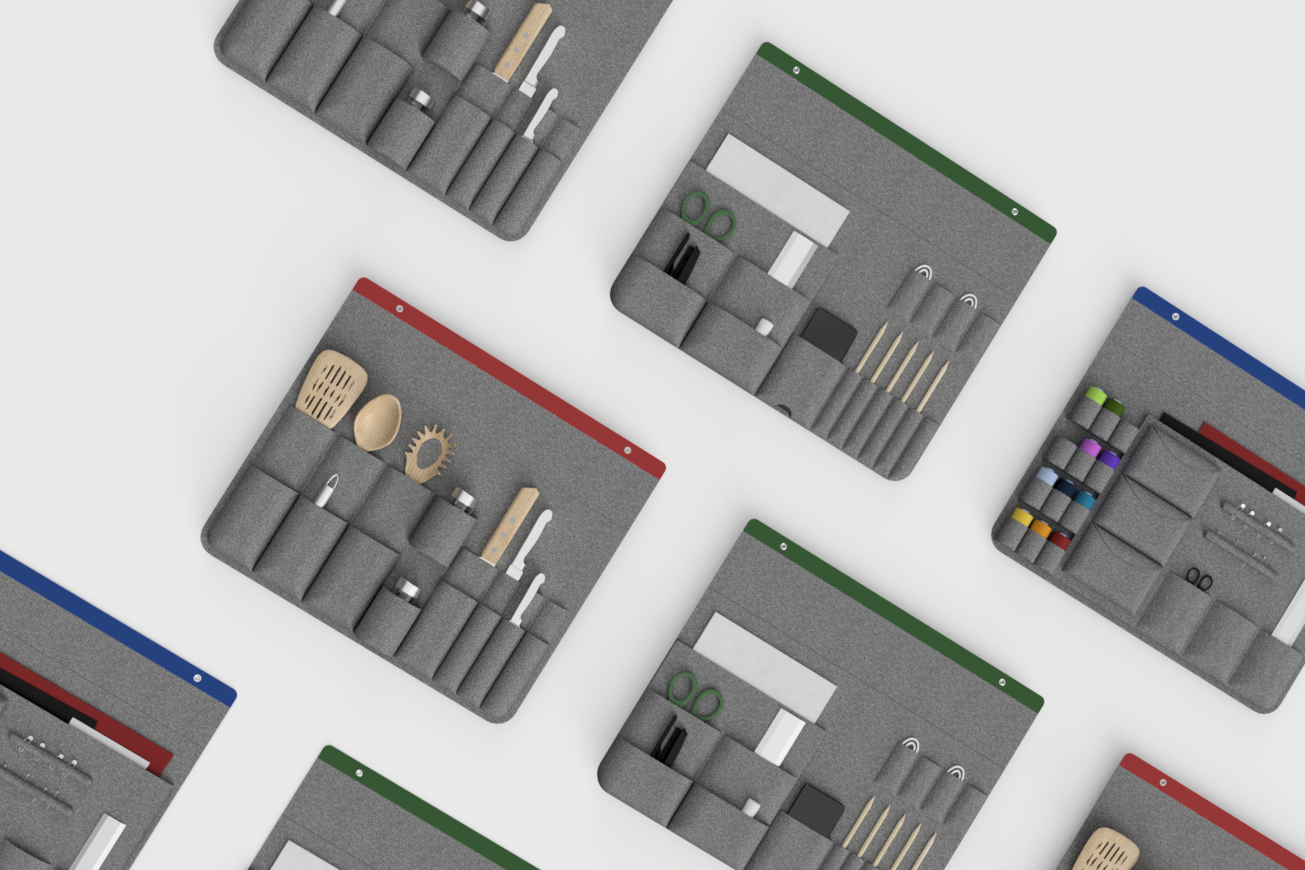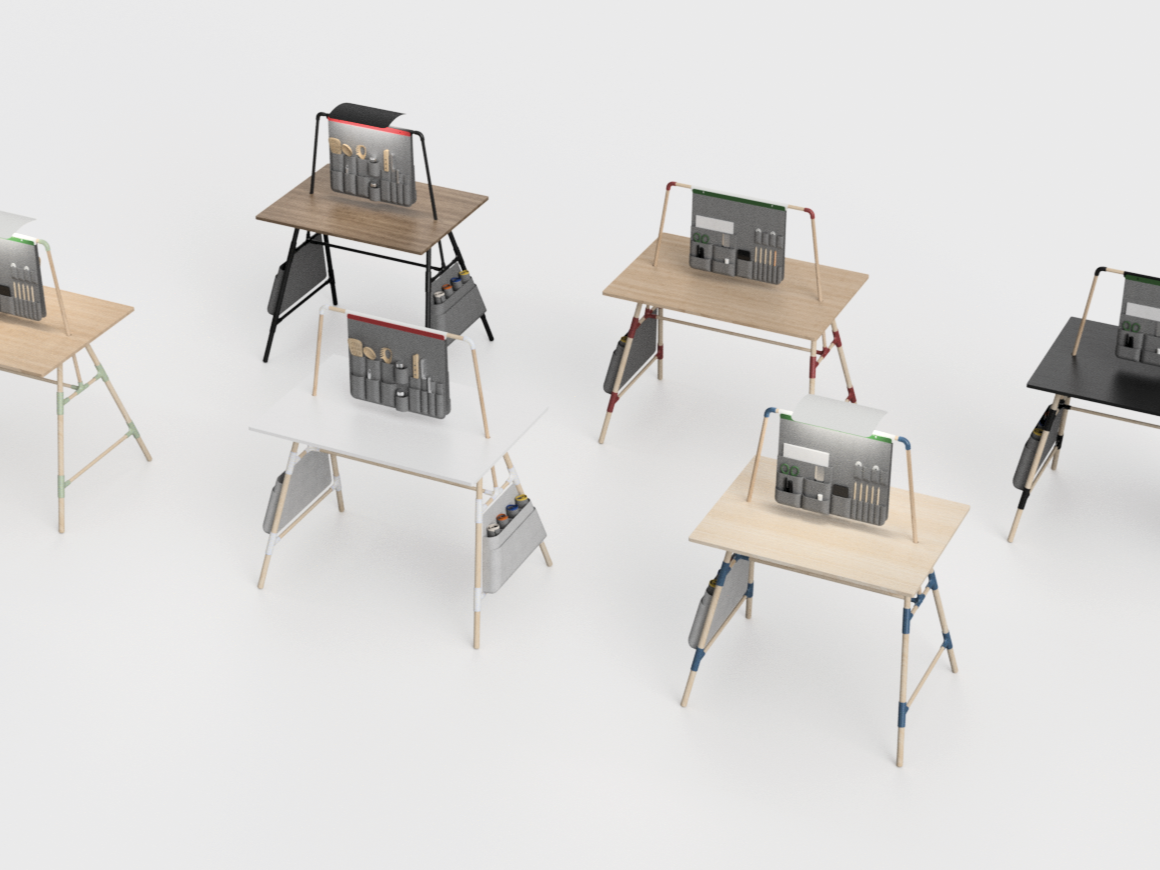Otomi
Useful information
- Team members
- Emilie Durand
- Country
- France
- Keywords
- autonomy DIY open source open design students small spaces
Short Description
Otomi is an open source furniture that allows people to develop their autonomy.
Detailed Description
Otomi is an open source furniture that allows people to develop their autonomy and their DIY skills. Originally made for students, it can be extended to a bigger audience.
It consists of a furniture personnalized to the user's dimensions, to a certain extend. The user can then choose if he wants to make it himself, by downloading the 3D-files, or ordering it at a local FabLab. The furniture is made of wood and assembled thanks to 3D-printed parts.
Once the furniture assembled, the user can sew or order some ROULO, which are rolls made for a certain use (cooking, sewing, tinkering, working, etc), that can be hung up on the furniture, or put away when not in use, or to create more space.
The furniture is double sided to help people in small spaces fully use their space and minimize their furniture, while still having space to work.
Project Details
- Does your design support sustainable production, embodying circular or regenerative design practices?
This project aims to lower consumption of furniture by reducing the amount of furniture people have at their place. It also promotes local production and local shops, as the only possibility to create the furniture and rolls is to connect with local stakeholders. Finally, the use of 3D-printing allows to recycle the assembly parts into news ones if they brake, by collecting them and using projects like Precious Plastic.
- Does your design use principles of distribution and open source?
The aim of this project is to create an open design that will suit everyone. The furniture can be personnalized and share. Each roll can be updated by users to have the same flow that happens with software open source: updates to make the product better.
- Does your design promote awareness of responsible design and consumption?
Allowing people to produce locally at a cheap price (on average cheaper than IKEA's tables), it promotes responsible design and consumption. By building the furniture themselves, people will better understand how it is made, and they'll be able to repair it more easily.
Images

